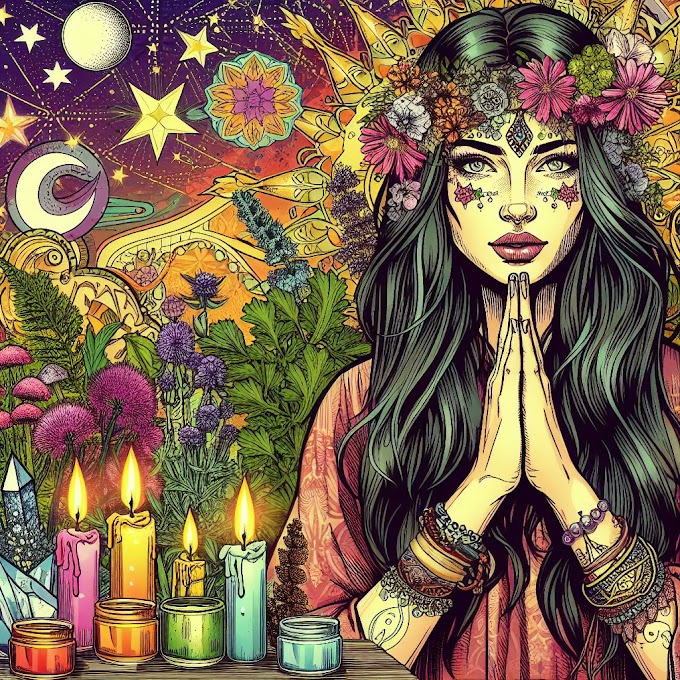Horus: The Falcon-Headed God of Kingship and Protection in Ancient Egypt
Horus, one of the most significant deities in ancient Egyptian mythology, embodies the essence of kingship, protection, and the sky. Revered as the god of the pharaohs and often depicted as a falcon or a man with a falcon's head, Horus represents the divine authority of rulers and serves as a powerful symbol of protection and resurrection. His multifaceted nature and rich mythology have left a lasting impact on ancient Egyptian culture and spirituality.
Origins and Mythology
Horus is the son of Osiris and Isis, born into a tumultuous world marked by conflict and rivalry. His birth follows the dramatic events surrounding the death of Osiris, which were orchestrated by his brother Set. Determined to avenge his father and reclaim his rightful place, Horus embarks on a journey filled with trials and tribulations that solidify his role as a protector of the pharaohs and the embodiment of rightful kingship.
In one of the most famous myths, Horus engages in a fierce battle with Set to reclaim the throne of Egypt. This epic conflict symbolizes the struggle between order and chaos, light and darkness. After a series of trials, Horus ultimately prevails, leading to his ascension as the ruler of Egypt and the symbol of divine kingship.
Symbolism and Attributes
Horus is often associated with several key attributes and symbols that reflect his roles and powers:
The Falcon: As the god of the sky, Horus is commonly depicted as a falcon or a man with a falcon's head. The falcon symbolizes strength, speed, and the divine connection to the heavens, reinforcing his status as a protector and overseer.
The Eye of Horus: One of the most recognizable symbols associated with Horus is the Eye of Horus, also known as the Wedjat. This symbol represents protection, healing, and restoration. It was often used as an amulet to ward off evil and ensure safety. The Eye of Horus also symbolizes the idea of completeness and wholeness, reflecting the restoration of Horus's eye after it was injured during his battle with Set.
The Ankh: Horus is frequently depicted holding the ankh, symbolizing life and immortality. This connection to life underscores his role in ensuring the prosperity and well-being of the pharaohs and the Egyptian people.
The Sistrum: Like Isis, Horus is associated with the sistrum, a musical instrument that symbolizes joy and celebration. The sistrum's connection to religious ceremonies highlights Horus's role in maintaining cosmic order and harmony.
Horus and Kingship
Horus's significance in ancient Egyptian culture extends beyond his mythological stories; he embodies the very concept of kingship. Pharaohs were often regarded as living manifestations of Horus, reinforcing their divine authority. The royal name of pharaohs typically included references to Horus, emphasizing their connection to this powerful deity.
The pharaohs' legitimacy was tied to their role as the earthly representative of Horus, ensuring the stability and prosperity of the kingdom. This divine connection allowed pharaohs to wield immense power and authority, further solidifying the importance of Horus in the religious and political landscape of ancient Egypt.
Worship and Cult of Horus
The worship of Horus was widespread throughout ancient Egypt, with temples dedicated to him in various regions. The most notable temple was located in Edfu, where rituals and ceremonies honoring Horus were conducted to ensure the pharaoh's divine protection and the stability of the kingdom.
Festivals dedicated to Horus, such as the Feast of the Opening of the Mouth, celebrated his role in resurrection and regeneration. These rituals included symbolic actions intended to activate the pharaoh's divine essence and ensure his favor in the afterlife.
Legacy and Influence
Horus's legacy extends far beyond ancient Egypt, influencing various cultures and religions throughout history. His imagery and symbolism have been incorporated into various spiritual traditions, reflecting the universal themes of protection, kingship, and divine authority.
In modern culture, Horus remains a popular figure in literature, art, and spiritual practices. His representation as a powerful and protective deity continues to resonate with individuals seeking strength and guidance in their lives.
Conclusion: The Enduring Power of Horus
Horus stands as a timeless symbol of kingship, protection, and the cosmic order in ancient Egyptian mythology. His epic battles, divine lineage, and profound significance in the lives of pharaohs illustrate the complexities of his character and the deep connection between the divine and the earthly realm.
As a representation of resilience and rightful authority, Horus invites us to explore the themes of power, protection, and the enduring spirit of life. His stories and symbolism continue to inspire and captivate, reminding us of the rich tapestry of ancient Egyptian spirituality and the lasting legacy of one of its most revered gods.






